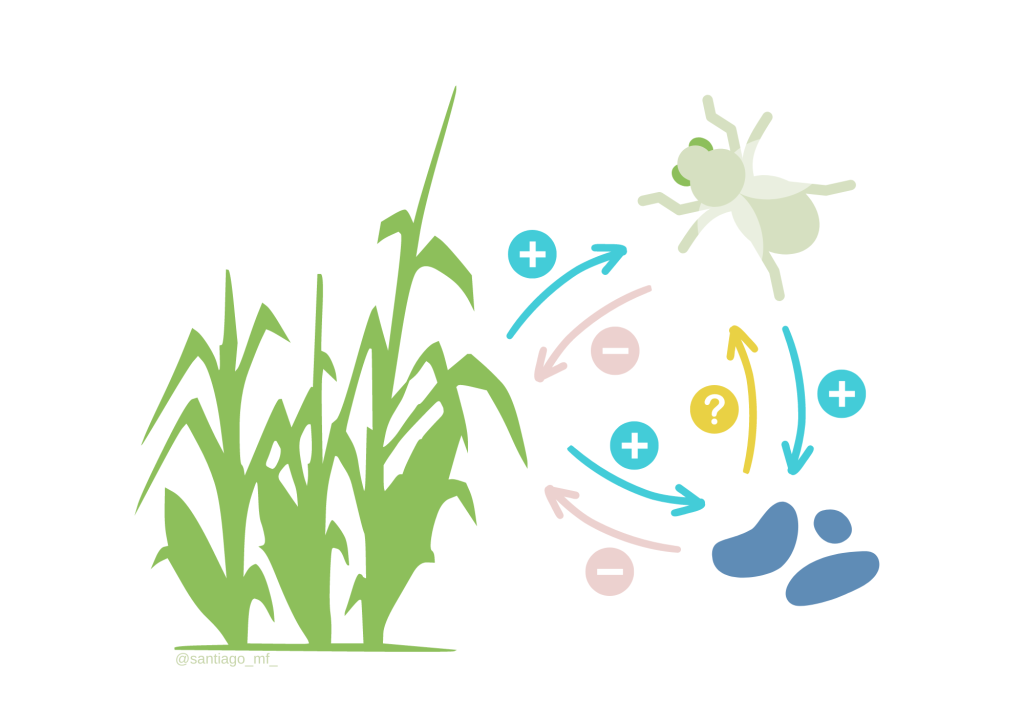Fourth-year Biology student Iela Santiago has just published her first first-authored paper. She matriculated in 2019 with a Jardine Scholarship. We asked her to tell us more about her research.
Congratulations on the publication of your paper! Please could you tell us a bit about the article and the issues which it explores?
Many plant pathogens are transmitted by insect vectors[1]. We know that plant pathogens [2] impart negative fitness effects on plants, but are there similar consequences for the insect vectors they rely on for transmission? We expect that evolution will favour pathogens that benefit or cause minimal harm to their vectors. We performed a meta-analysis to investigate this hypothesis and found pathogens do tend to have a neutral effect on their vectors; however, the range of possible infection outcomes was very broad, with some pathogens even harming their vectors considerably.
What are the applications of this work in growing crops?
Our findings suggest that the fitness effects of plant pathogen infection in insect vectors are highly context dependent. More work is necessary to dissect the biological factors modulating infection outcomes and figure out how we can take advantage of that. In the meantime, it is worth noting that vector control approaches need to keep system-specific contexts in mind; an approach that works in one species might not work in another.
What challenges did you face with researching this area?
It was challenging to take on a meta-analysis project as an undergraduate alongside studying for finals. I also realised that in the process of doing research, there are sometimes no clear answers to your questions and you have to rely on your own scientific judgment. I’m incredibly grateful to my mentor Georgia Drew at Somerville College, who guided me throughout this project and helped me make those judgment calls!
What are you working on next?
I’m broadly interested in what happens when microbes and eukaryotic hosts live together. My current focus is the gut microbiome; for my MBiol project, I am working with the Knowles Lab to explore the ecology of the gut microbiome in wild mice. Later this year, I will be starting a PhD in microbial ecology in the US, where I hope to explore how host-associated microbes interact with one another in complex communities.
Away from the lab, what do you enjoy about being a member of Queen’s?
As an international student, I really appreciate the resources available at Queen’s. Queen’s is the only Oxford college that offers both Biology and the Jardine Scholarship, so it was an obvious choice for me when I was applying. Its central location, guaranteed housing for all years of my degree, friendly community, and supportive tutors also made it much easier for me adjust to the UK when I first moved. I’m very grateful to have received the Scholarship, and I’m really glad I applied to Queen’s – I can’t imagine a better college fit!

[1] A vector is a living organism that transmits an infectious agent from an infected animal to a human or another animal. Vectors are frequently arthropods, such as mosquitoes, ticks, flies, fleas and lice.
[2] Plant pathogens are very similar to those that cause disease in humans and animals. Fungi, fungal-like organisms, bacteria, phytoplasmas, viruses, viroids, nematodes and parasitic higher plants are all plant pathogens.



